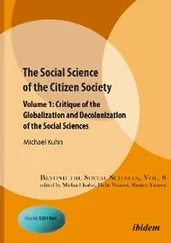Significant scientific results, achieved in the socio-ecological fields, which consider globalization in terms of the development of the global crisis of resources, demographics, and the environment. It should be noted that this field has been controlled from the very beginning by representatives of global elites with the help of some international organizations and foundations that organize scientific research.
By manipulating the “global threats”, the adherents of the concepts of “sustainable development” and “zero growth” motivate the withdrawal of states and relevant social communities to abstain from choosing their own path of development. They advocate the creation of supranational institutions with global political power that are uncontrollable and non-transparent for the participating countries, and justify the “objective necessity” of reducing the living standards and social guarantees of the bulk of the population and even the “inevitable decline” of the world’s population.
However, the term “sustainable development” clearly reflects the interests of global financial elites who lobby for the preservation and increase of disparity between the “global core” and “global periphery”, the solution of global contradictions, which is found at the expense of economic and political outsiders of the global community.
At the same time, in Russia, the foundation in the field of fundamental sciences about nature could not fail to culminate in scientific achievements, significant not only in the applied sense but also in the general philosophical one. Firstly, this concerns the concept of physical economics of P.G. Kuznetsov 25 25 Kuznetsov, P.G. Izbrannye trudy. Dubna, 2014, 360 pp.
and several works on globalistics and system analysis of global development, which were carried out by Russian researchers. Among the latter, we should mention the works of the world-renowned geophysicist and climatologist K.Y. Kondratyev and his associates 26 26 Kondratiev, K.Y., Krapivin, V.F., Savinykh V.P. Perspektivy razvitiya tsivilizatsii: mnogomerny analiz. M.: Logos, 2003, 576 pp.
, and the works of A.P. Fedotov 27 27 Fedotov, A.P. Globalistika: Nachala nauki o sovremennom mire lyudei. Kurs lektsii. M.: Aspekt-press, 2002, 224 pp.
and A.I. Subetto, with their focus on the noosphere 28 28 Subetto, A.I. Kapitalokratia i globalny imperializm. SPb.: Asterion, 2009, 572 pp.
.
The crisis of the formation-based approach as a form of economic determinism elicited a natural interest in the civilizational approach, which focuses on problems of a sociocultural order. Among the Russian authors who consider globalization from the standpoint of the civilizational approach, the concepts of Y.V. Yakovets and E.A. Azroyants should be highlighted.
Thus, the work “Globalization and the interaction of civilizations” 29 29 Yakovets, Y.V. Globalizatsia i vzaimodeistvie tsivilizatsii. M., 1993, 137 pp.
puts forward the main ideas of the modern civilizational approach to globalization:
1. Human history is a periodic change of global civilizations, which assumes the form of consecutive global historical cycles.
2. Each global civilization can be conventionally represented as a five-step pyramid, where the demographic substratum with its biosocial needs and manifestations lies at the foundation. At the top of the pyramid, there are phenomena of a spiritual and cultural nature, including culture, science, education, ideology, ethics, and religion. Social transformation begins at the bottom step and gradually transforms all steps of the pyramid, leading to a change of one civilization into another one.
3. With each historical cycle, the intensity of inter-civilizational interaction increases, resulting in humanity gradually becoming a unified social system.
4. The modern age represents a transition from industrial to post-industrial global civilization.
5. Globalization transformations are typical of the establishment of modern post-industrial global civilization.
6. The main contradiction of the neoliberal-technocratic model of globalization is that it does not serve the interests of humanity but, rather, the interests of the largest transnational corporations (TNCs).
This concept explains the fact that sociocultural unification and the convergence of local societies present a threat because they reduce the viability and development potential of humanity. The answer to this challenge is the establishment of “fourth-generation” civilizations. This theory, which is based on the idea of a historically evolving structure of local civilizations, including the change of civilizational leadership, is developed in detail in various works 30 30 Yakovets, Y.V. U istokov novoi tsivilizatsii. M., 1993, 137 pp.
, 31 31 Yakovets, Y.V. Ctsykly, krizisy, prognozy. M., 1999, 283 pp.
. This concept substantiates the fact that the tendency towards socio-cultural unification of local civilizations currently plays a major role. In other words, the convergence of local civilizations is heading towards a global one. This theory takes the neoliberal model of global convergence (“westernization”, according to A. Zinoviev’s terminology 32 32 Zinoviev, A.A. Na puti k sverobschestvu. M.: Tsentrpoligraf, 2000, 637 pp.
) as the basis, without seeing or proposing any alternative models of development or subjects interested in alternative development.
Meanwhile, global unification is impossible at the very least because there is a struggle of peripheral local civilizations against the currently dominant civilization of the West. This struggle will inevitably produce fundamentally different kinds of social life and fundamentally different social norms and rules, alternative values, and models of social life.
Having absorbed the whole world, the global civilization will inevitably generate new ways of forming groups and structures.
However, Y.V. Yakovets’s rejection of the formation-based approach leads to the rejection of his main achievement – the notion of conflict and group interests as the driving forces of social and historical development. It also leads to the rejection of the achievements and possibilities of sociological structuralism, which sees society as a system of objectively existing social groups and structures that include, in particular, class and ethnocultural communities.
E.A. Azroyants 33 33 Azroyants, E.A. Razmyshlenia o buduschem // Globalizatsiya. Konflikt ili dialog tsivilizatsiiz? M., 2002, pp. 37—45.
develops his original model of globalization as the concept of historical cycles and distinguishes three main cycles in human evolution: the emergence of humans; the establishment and development of the social community; and, ultimately, the establishment of a global megasociety as the highest “spiritual and moral” form of human existence.
Development cycles are connected with transitional periods, which contain situations where it is possible to make a history-defining choice of the future path, the crossroads, from which different historical development paths branch out. Each cycle is seen as an evolutionary niche, a transition in the course of which there is a choice of a probable way of developing the local or global society. At the same time, the current situation, which is characterized by the global crisis, does not exclude the possibility of a fatal outcome for local civilizations and humanity as a whole as one of these options.
E.A. Azroyants rightly believes that humanity is experiencing a civilizational crisis corresponding to the transition from the second cycle, i.e. the establishment of a community, to the third, the establishment of a “megasociety”. Accordingly, the current liberal model of globalization (globalization of TNCs and financial capital) does not allow a new level of development to be reached, which requires the development of a qualitatively new, “humanistic” model of global development. However, according to the author, the modern world has not formed social actors that are capable of, and interested in, “resisting TNCs and managing globalization in the interests of the entire humankind”.
Читать дальше












